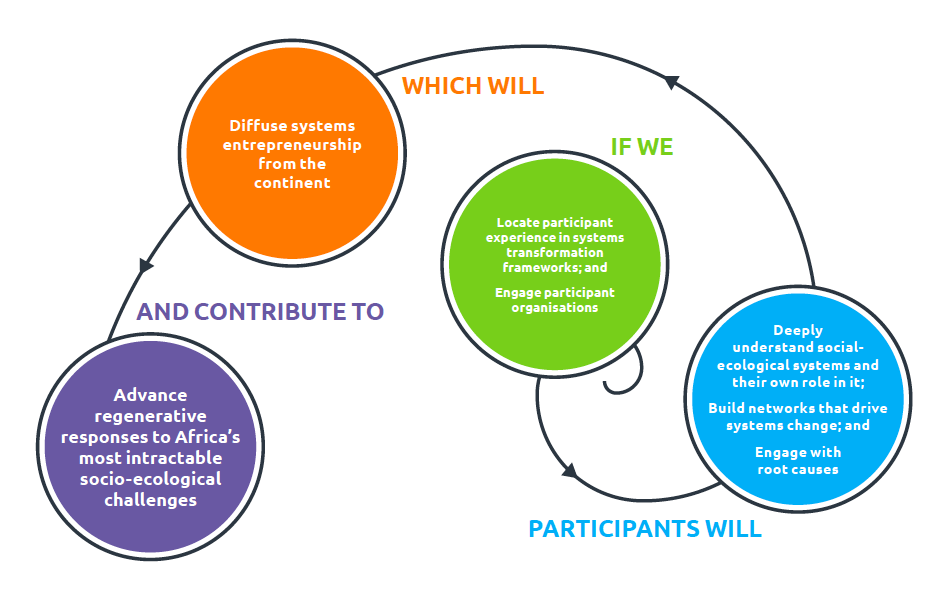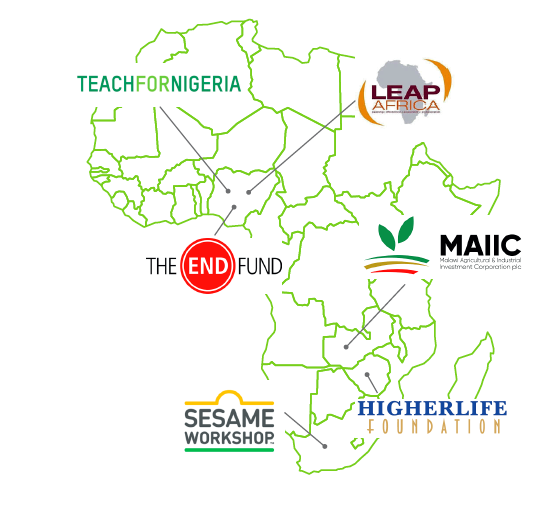Advancing Social Innovation
Catalysts for Social and Economic Change
Systems Innovation & Change
African Philanthropy Forum Systems Change Program
African Philanthropy Forum (APF) is committed to understanding and addressing the complex systems that surround the social issues that plague Africa. To this end, APF recognises the need to nurture initiatives that have the capacity to address Africa’s persistent social and ecological challenges, which led to the selection of organisations focused on addressing sustainable development goals on the continent. APF sees a critical opportunity to examine the performance of our systems in a comprehensive way and apply an innovative mindset to the delivery, financing, governance and management of our social responses.
The programme has been developed as a response to 3 observations:
- Social innovation towards systems change in Africa needs support to achieve impact at scale;
- Because innovation operates in complex social settings its best efforts can be frustrated by a myriad of interconnected bottlenecks, and;
- African philanthropists have both the will and the resources to play a key role in helping African systems change initiatives deepen the impact of the work they do.
The aim of the programme is to accelerate systems change initiatives on the continent by nurturing systems entrepreneurship. It also provides a unique opportunity for selected African leaders to work in a network of systems entrepreneurship as well as to access a global network of funders and philanthropists.
The Program is delivered in partnership with Dahlberg and the Bertha Centre for Social Innovation and Entrepreneurship at the University of Cape Town Graduate School of Business
Programme outline
The programme will run for 12 months working with a network of African organisations from across the African continent.
It is a direct response to the need to uncover systemic and collaborative responses to Africa’s most intractable socio-ecological challenges.
It spans multiple SDG areas including health, education, youth, women and children, nutrition, and economic empowerment.
The programme offers a bespoke package of systems change frameworks applied to partner engagement, socio-ecological systems, leadership development, policy advocacy and innovative financing.
As well as programmatic capacity development, participants will be invited to identify with reflective practice in their own work.
Programme delivery is a combination of presentations; workshops; coaching support and consultation.
Systems Change and Entrepreneurship
Systems change aims to address the root causes of persistent socio-ecological challenges that are embedded in networks of cause and effect. It is a lens and a process that moves to fundamentally alter the foundations of a system towards positive change.
Systems entrepreneurship refers to the combined capacities and cumulative power of groups and networks of people working to nudge at a system’s tipping points so that an innovation can have transformative impact.
The APF Systems Change Program will strengthen the following systems entrepreneurship capabilities:
- Collaboration;
- Employing a culture of experimentation and learning;
- Working across scale;
- The ability to change perspective to increase understanding;
- The capacity to navigate emergence;
- The capacity to embrace complexity, and;
- Appreciative analysis.
Theory of Change
Our Theory of Change follows the below logic:
If we strengthen African social entrepreneurs’ knowledge and skills to unlock systems entrepreneurship by:
- Locating their experience in systems transformation frameworks; and
- Engaging their organisation as a whole.
Then they will collectively diffuse systems entrepreneurship from where they are, by:
- Deeply understanding social-ecological systems and their own role and agency in the system.
- Building networks that drive systems change; and
- Engaging with root causes to develop systems solutions to complex problems.
Their systems entrepreneurship will, in turn, contribute to regenerative (as opposed to extractive) responses to Africa’s most intractable socio-ecological challenges.
This Theory of Change is represented in the below infographic:

Project partners
African Philanthropy Forum
The Bertha Centre
Dalberg
Participating organisations

